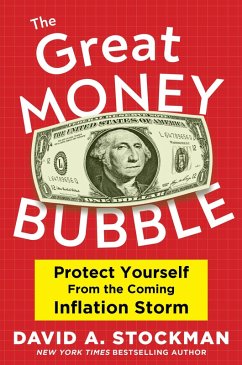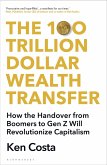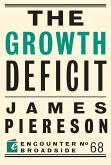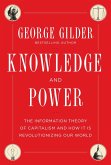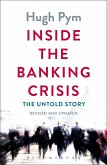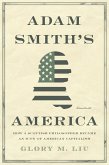David A. Stockman
The Great Money Bubble (eBook, ePUB)
Protect Yourself from the Coming Inflation Storm
16,95 €
16,95 €
inkl. MwSt.
Sofort per Download lieferbar

8 °P sammeln
16,95 €
Als Download kaufen

16,95 €
inkl. MwSt.
Sofort per Download lieferbar

8 °P sammeln
Jetzt verschenken
Alle Infos zum eBook verschenken
16,95 €
inkl. MwSt.
Sofort per Download lieferbar
Alle Infos zum eBook verschenken

8 °P sammeln
David A. Stockman
The Great Money Bubble (eBook, ePUB)
Protect Yourself from the Coming Inflation Storm
- Format: ePub
- Merkliste
- Auf die Merkliste
- Bewerten Bewerten
- Teilen
- Produkt teilen
- Produkterinnerung
- Produkterinnerung

Bitte loggen Sie sich zunächst in Ihr Kundenkonto ein oder registrieren Sie sich bei
bücher.de, um das eBook-Abo tolino select nutzen zu können.
Hier können Sie sich einloggen
Hier können Sie sich einloggen
Sie sind bereits eingeloggt. Klicken Sie auf 2. tolino select Abo, um fortzufahren.

Bitte loggen Sie sich zunächst in Ihr Kundenkonto ein oder registrieren Sie sich bei bücher.de, um das eBook-Abo tolino select nutzen zu können.
"I urge everyone to read this important new book.Ron Paul, Host of Ron Paul Liberty Report
Americans are facing sticker shock at every turn: from the gas pump to the grocery store and every kind of consumer service. But the eye-popping price increases are just the tip of the iceberg in terms of the threat to the country's economic recovery. Inflation showers windfalls on the rich while penalizing workers, savers, retirees, small businesses, and most of Main Street economic life.
New York Times bestselling author and former investment manager David A. Stockman, who served as director of…mehr
- Geräte: eReader
- mit Kopierschutz
- eBook Hilfe
- Größe: 5.8MB
Andere Kunden interessierten sich auch für
![Discrimination and Disparities (eBook, ePUB) Discrimination and Disparities (eBook, ePUB)]() Thomas SowellDiscrimination and Disparities (eBook, ePUB)16,99 €
Thomas SowellDiscrimination and Disparities (eBook, ePUB)16,99 €![Europe in Crisis (eBook, ePUB) Europe in Crisis (eBook, ePUB)]() Ivan BerendEurope in Crisis (eBook, ePUB)40,95 €
Ivan BerendEurope in Crisis (eBook, ePUB)40,95 €![The 100 Trillion Dollar Wealth Transfer (eBook, ePUB) The 100 Trillion Dollar Wealth Transfer (eBook, ePUB)]() Ken CostaThe 100 Trillion Dollar Wealth Transfer (eBook, ePUB)8,95 €
Ken CostaThe 100 Trillion Dollar Wealth Transfer (eBook, ePUB)8,95 €![The Growth Deficit (eBook, ePUB) The Growth Deficit (eBook, ePUB)]() James PieresonThe Growth Deficit (eBook, ePUB)5,99 €
James PieresonThe Growth Deficit (eBook, ePUB)5,99 €![Knowledge and Power (eBook, ePUB) Knowledge and Power (eBook, ePUB)]() George GilderKnowledge and Power (eBook, ePUB)12,85 €
George GilderKnowledge and Power (eBook, ePUB)12,85 €![Inside the Banking Crisis (eBook, ePUB) Inside the Banking Crisis (eBook, ePUB)]() Hugh PymInside the Banking Crisis (eBook, ePUB)11,95 €
Hugh PymInside the Banking Crisis (eBook, ePUB)11,95 €![Adam Smith's America (eBook, ePUB) Adam Smith's America (eBook, ePUB)]() Glory M. LiuAdam Smith's America (eBook, ePUB)17,95 €
Glory M. LiuAdam Smith's America (eBook, ePUB)17,95 €-
-
-
"I urge everyone to read this important new book.Ron Paul, Host of Ron Paul Liberty Report
Americans are facing sticker shock at every turn: from the gas pump to the grocery store and every kind of consumer service. But the eye-popping price increases are just the tip of the iceberg in terms of the threat to the country's economic recovery. Inflation showers windfalls on the rich while penalizing workers, savers, retirees, small businesses, and most of Main Street economic life.
New York Times bestselling author and former investment manager David A. Stockman, who served as director of the Office of Management and Budget under President Reagan, explains the roots of today's runaway inflation so investors at all levels can calibrate their financial strategies to survive and thrive despite economic uncertainty.
The Great Money Bubble covers the entire economic landscape, including:
After spearheading the economic policy for the Reagan Revolution, Stockman worked on Wall Street at the highest levels, and is now an adviser to professional investors. With this book, readers at all investment levels can have access to his groundbreaking financial advice.
Americans are facing sticker shock at every turn: from the gas pump to the grocery store and every kind of consumer service. But the eye-popping price increases are just the tip of the iceberg in terms of the threat to the country's economic recovery. Inflation showers windfalls on the rich while penalizing workers, savers, retirees, small businesses, and most of Main Street economic life.
New York Times bestselling author and former investment manager David A. Stockman, who served as director of the Office of Management and Budget under President Reagan, explains the roots of today's runaway inflation so investors at all levels can calibrate their financial strategies to survive and thrive despite economic uncertainty.
The Great Money Bubble covers the entire economic landscape, including:
- Why the rising price of assets is far more dangerous than rising consumer prices
- The inside story on stock market manipulations and the effects of ultracheap debt
- Why real estate is no longer a guaranteed inflationary hedge
- Stockman's four-step strategy to protect your savings and portfolio
After spearheading the economic policy for the Reagan Revolution, Stockman worked on Wall Street at the highest levels, and is now an adviser to professional investors. With this book, readers at all investment levels can have access to his groundbreaking financial advice.
Dieser Download kann aus rechtlichen Gründen nur mit Rechnungsadresse in A, D ausgeliefert werden.
Produktdetails
- Produktdetails
- Verlag: Humanix Books
- Erscheinungstermin: 4. Oktober 2022
- Englisch
- ISBN-13: 9781630062200
- Artikelnr.: 63744793
- Verlag: Humanix Books
- Erscheinungstermin: 4. Oktober 2022
- Englisch
- ISBN-13: 9781630062200
- Artikelnr.: 63744793
- Herstellerkennzeichnung Die Herstellerinformationen sind derzeit nicht verfügbar.
David A. Stockman is the ultimate Washington insider turned iconoclast. He began his career in Washington as a young man and quickly rose through the ranks of the Republican Party to become the Director of the Office of Management and Budget under President Ronald Reagan. After leaving the White House, Stockman had a 20-year career on Wall Street.
Stockman's career in Washington began in 1970, when he served as a special assistant to U.S. Representative, John Anderson of Illinois. From 1972 to 1975, he was executive director of the U.S. House of Representatives Republican Conference. Stockman was elected as a Michigan Congressman in 1976 and held the position until his resignation in January 1981. He then became Director of the Office of Management and Budget under President Ronald Reagan, serving from 1981 until August 1985. Stockman was the youngest cabinet member in the 20th century. Although only in his early 30s, Stockman became well known to the public during this time concerning the role of the federal government in American society.
After leaving government, Stockman joined Wall Street investment bank Salomon Bros. He later became one of the original partners at New York-based private equity firm, The Blackstone Group. Stockman left Blackstone in 1999 to start his own private equity fund based in Greenwich, Connecticut.
Stockman is the author of numerous New York Times bestselling books and also provides private research and analysis to professional investors and firms globally through David Stockman's Contra Corner, his subscriber advisory relating to investing, global economics, and public policy.
Stockman was born in Ft. Hood, Texas. He received his B.A. from Michigan State University and pursued graduate studies at Harvard Divinity School. He lives with his wife Jennifer Blei Stockman, and they have two daughters, Rachel and Victoria. He lives & works in the Miami, Florida metro area.
www.davidstockmanscontracorner.com
Stockman's career in Washington began in 1970, when he served as a special assistant to U.S. Representative, John Anderson of Illinois. From 1972 to 1975, he was executive director of the U.S. House of Representatives Republican Conference. Stockman was elected as a Michigan Congressman in 1976 and held the position until his resignation in January 1981. He then became Director of the Office of Management and Budget under President Ronald Reagan, serving from 1981 until August 1985. Stockman was the youngest cabinet member in the 20th century. Although only in his early 30s, Stockman became well known to the public during this time concerning the role of the federal government in American society.
After leaving government, Stockman joined Wall Street investment bank Salomon Bros. He later became one of the original partners at New York-based private equity firm, The Blackstone Group. Stockman left Blackstone in 1999 to start his own private equity fund based in Greenwich, Connecticut.
Stockman is the author of numerous New York Times bestselling books and also provides private research and analysis to professional investors and firms globally through David Stockman's Contra Corner, his subscriber advisory relating to investing, global economics, and public policy.
Stockman was born in Ft. Hood, Texas. He received his B.A. from Michigan State University and pursued graduate studies at Harvard Divinity School. He lives with his wife Jennifer Blei Stockman, and they have two daughters, Rachel and Victoria. He lives & works in the Miami, Florida metro area.
www.davidstockmanscontracorner.com
OUTLINE for INFLATION NIGHTMARE: How to Protect Your Money in the Coming
Crash by David A. Stockman
Part 1
Chapter 1: Washington’s Infernal Inflation Machine
* An economist’s definition (classical, a la Friedman): Inflation is
caused by central bank money printing, not by supply and demand for
goods and services in the market
1. Inflation artificially increases the price of almost everything: goods,
services, housing, stocks, other financial assets, collectibles and crypto
* Real world examples here
2. Different kinds of inflation
3. Core inflation vs. food/energy
* Real world examples here, story format
4. PPI, CPI, inflation expectations, “stagflation”
* Real world examples here, story format
* What’s “normal” inflation? Is it necessary for growth?
* Stockman’s thesis: Massive money printing is causing massive asset
inflation in the form of stock prices that are not justified by
earnings and interest rates that are drastically below what is needed
to cover inflation and risk of loss, and it is tying up capital for
long periods of time.
Chapter 2: How do normal people experience inflation? How do you know if
inflation is happening?
5. > as in what an average person experiences to what happens to
paycheck/dividends/savings accounts
6. Risk-free rate lower than inflation
* Real world examples here, story format
7. What happens to your paycheck when inflation runs hot
* Real world examples here, story format
8. Savings rates in the age of QE
* Real world examples here, story format
9. Fed’s “hedonic adjustment” to hide inflation from ordinary people
* Real world examples here, story format
10. How long you have to work to buy a good, such as a house or car
11. For instance, the average worker had to work 7,160 hours (almost four
years) to buy the median home in 1971. By 2020, he had to work double that:
14,365 hours.
12. Same was true of a new car. To buy a standard Ford Mustang Coupe, the
average worker had to work 5.3 months in 1971, 8.2 months in 1997 and 10.8
months in 2020.
13. While all that was happening, ordinary savers are barely keeping up with
inflation in their paycheck while any savings they have suffer from low
rates
* Examples and data illustrating the above, 1990s CD rates vs. today,
etc
Chapter 3: How to read the signs of inflation
14. Lessons from previous period (stories, not economic theory/economic policy)
15. How Reagan and Paul Volcker fixed the inflation disaster of the 1970s
* Brief history of the period
* Real world examples here, story format
16. The “Great Moderation” of low inflation and growth ballyhooed by Bernanke
in 2005 was a ruse.
* In fact, goods and services inflation was just temporarily pushed
underground owing to imported deflation from China
* A generation of investors and savers has now lulled to sleep by
artificially low inflation
Chapter 4: Why inflation is a danger now
* For consumers, goods inflation has been artificially cheap while
services inflation has taken off. As China matures, goods inflation
will catch up.
17. For investors, fiat credit has led to asset inflation, going to the top 1%
as a massive, serendipitous windfall
18. Stock valuations are an illusion of the worst kind (Stockman thesis)
19. P/E ratios are vastly inflated...earnings haven’t increased materially
since 2007
20. 15x earnings to now 35x earnings, the result of monetary inflation
21. Tech leaders have driven the indexes today for the most part (FAANG stock
effect)
* Real world examples here, story format
22. Projected capital appreciation is falling (according to Vanguard et al) and
yet new market highs keep getting printed, over and over
* How long can the Fed keep this up, inflating the system?
* Inflation of asset has become institutionalized, nobody even thinks
about it anymore
* At some point the music stops...right?
23. Bond yields will go up, but bond prices will drop causing big capital
losses
* When bond yields go back to normal, justification for ultra high P/E
multiples will collapse, causing stock prices to adjust drastically
lower
* So what would actually happen to a typical retiree portfolio, real
world examples here, story format
24. Similarly, financial asset inflation makes the carrying cost of debt dirt
cheap, thereby encouraging households to over-borrow in order to make up
for the shrinking purchasing power of their wages.
* Accordingly, during the past three decades, household debt in all
forms has increased from $36,000 per household to $130,000
* Expand on household debt examples: credit card explosion, home equity
boom of 2007
Part 2
Chapter 5: The slippery slope for investors now
25. Essentially when the Fed finally gets cornered and it becomes apparent that
inflation is no longer transitory, and it has to deal with America’s $85
trillion of combined public and private debt, there will be big corrections
26. Bond market is biggest bubble in history
* Stories from bond market breaks past
27. Bond repricing will spread to the stock market
28. When all correlations fall to zero, as in 2007, “nowhere to hide”
* Real world examples here, story format
29. Investors think high stock prices are sustainable because high P/E
multiples are justified by ultra-low bond yields
* But that will correct in the tech sector, deflating the value of the
whole stock market since they have lead the growth for years
* Everything prices off the 10-year bond, if that’s 200 bp under
inflation, can that last? It can’t
Chapter 6: How to invest once inflation really takes off: how to protect
hard-earned savings
30. Inflation-proof "real assets" investments
* REITS/Real Estate
* Art (Alternative investments)
* Cryptocurrency
* Commodities
* TIPS
31. Growth Stocks that do well in inflationary times
* Banks/Financials
* Food
* Healthcare
* Energy
* Building Materials
32. What will in fact work: The role of cash and true hedges
33. Stick to short-term cash-type investments (T-bills, savings accounts, CDs)
cash and keep as liquid as possible
34. Cash is not trash, it will soon be treasure
35. Gold as a hedge
36. Buying puts (how to do this safely using funds or ETFs)
37. Federal government is not going away
* Treasury bills are safe, if lower rate of return: likely 2% to 4%
return once Fed is forced to let interest rates rise to check CPI
inflation
Chapter 7: What Investments to Avoid and Why
* Avoid meme stocks, tech stocks, flavor of the month trading, crypto
schemes
* Bubble thinking is a symptom of underlying sickness
Chapter 8: Debt Strategy
* What to do with any debt you might have/credit cards, mortgage,
college loans, medical bills
Crash by David A. Stockman
Part 1
Chapter 1: Washington’s Infernal Inflation Machine
* An economist’s definition (classical, a la Friedman): Inflation is
caused by central bank money printing, not by supply and demand for
goods and services in the market
1. Inflation artificially increases the price of almost everything: goods,
services, housing, stocks, other financial assets, collectibles and crypto
* Real world examples here
2. Different kinds of inflation
3. Core inflation vs. food/energy
* Real world examples here, story format
4. PPI, CPI, inflation expectations, “stagflation”
* Real world examples here, story format
* What’s “normal” inflation? Is it necessary for growth?
* Stockman’s thesis: Massive money printing is causing massive asset
inflation in the form of stock prices that are not justified by
earnings and interest rates that are drastically below what is needed
to cover inflation and risk of loss, and it is tying up capital for
long periods of time.
Chapter 2: How do normal people experience inflation? How do you know if
inflation is happening?
5. > as in what an average person experiences to what happens to
paycheck/dividends/savings accounts
6. Risk-free rate lower than inflation
* Real world examples here, story format
7. What happens to your paycheck when inflation runs hot
* Real world examples here, story format
8. Savings rates in the age of QE
* Real world examples here, story format
9. Fed’s “hedonic adjustment” to hide inflation from ordinary people
* Real world examples here, story format
10. How long you have to work to buy a good, such as a house or car
11. For instance, the average worker had to work 7,160 hours (almost four
years) to buy the median home in 1971. By 2020, he had to work double that:
14,365 hours.
12. Same was true of a new car. To buy a standard Ford Mustang Coupe, the
average worker had to work 5.3 months in 1971, 8.2 months in 1997 and 10.8
months in 2020.
13. While all that was happening, ordinary savers are barely keeping up with
inflation in their paycheck while any savings they have suffer from low
rates
* Examples and data illustrating the above, 1990s CD rates vs. today,
etc
Chapter 3: How to read the signs of inflation
14. Lessons from previous period (stories, not economic theory/economic policy)
15. How Reagan and Paul Volcker fixed the inflation disaster of the 1970s
* Brief history of the period
* Real world examples here, story format
16. The “Great Moderation” of low inflation and growth ballyhooed by Bernanke
in 2005 was a ruse.
* In fact, goods and services inflation was just temporarily pushed
underground owing to imported deflation from China
* A generation of investors and savers has now lulled to sleep by
artificially low inflation
Chapter 4: Why inflation is a danger now
* For consumers, goods inflation has been artificially cheap while
services inflation has taken off. As China matures, goods inflation
will catch up.
17. For investors, fiat credit has led to asset inflation, going to the top 1%
as a massive, serendipitous windfall
18. Stock valuations are an illusion of the worst kind (Stockman thesis)
19. P/E ratios are vastly inflated...earnings haven’t increased materially
since 2007
20. 15x earnings to now 35x earnings, the result of monetary inflation
21. Tech leaders have driven the indexes today for the most part (FAANG stock
effect)
* Real world examples here, story format
22. Projected capital appreciation is falling (according to Vanguard et al) and
yet new market highs keep getting printed, over and over
* How long can the Fed keep this up, inflating the system?
* Inflation of asset has become institutionalized, nobody even thinks
about it anymore
* At some point the music stops...right?
23. Bond yields will go up, but bond prices will drop causing big capital
losses
* When bond yields go back to normal, justification for ultra high P/E
multiples will collapse, causing stock prices to adjust drastically
lower
* So what would actually happen to a typical retiree portfolio, real
world examples here, story format
24. Similarly, financial asset inflation makes the carrying cost of debt dirt
cheap, thereby encouraging households to over-borrow in order to make up
for the shrinking purchasing power of their wages.
* Accordingly, during the past three decades, household debt in all
forms has increased from $36,000 per household to $130,000
* Expand on household debt examples: credit card explosion, home equity
boom of 2007
Part 2
Chapter 5: The slippery slope for investors now
25. Essentially when the Fed finally gets cornered and it becomes apparent that
inflation is no longer transitory, and it has to deal with America’s $85
trillion of combined public and private debt, there will be big corrections
26. Bond market is biggest bubble in history
* Stories from bond market breaks past
27. Bond repricing will spread to the stock market
28. When all correlations fall to zero, as in 2007, “nowhere to hide”
* Real world examples here, story format
29. Investors think high stock prices are sustainable because high P/E
multiples are justified by ultra-low bond yields
* But that will correct in the tech sector, deflating the value of the
whole stock market since they have lead the growth for years
* Everything prices off the 10-year bond, if that’s 200 bp under
inflation, can that last? It can’t
Chapter 6: How to invest once inflation really takes off: how to protect
hard-earned savings
30. Inflation-proof "real assets" investments
* REITS/Real Estate
* Art (Alternative investments)
* Cryptocurrency
* Commodities
* TIPS
31. Growth Stocks that do well in inflationary times
* Banks/Financials
* Food
* Healthcare
* Energy
* Building Materials
32. What will in fact work: The role of cash and true hedges
33. Stick to short-term cash-type investments (T-bills, savings accounts, CDs)
cash and keep as liquid as possible
34. Cash is not trash, it will soon be treasure
35. Gold as a hedge
36. Buying puts (how to do this safely using funds or ETFs)
37. Federal government is not going away
* Treasury bills are safe, if lower rate of return: likely 2% to 4%
return once Fed is forced to let interest rates rise to check CPI
inflation
Chapter 7: What Investments to Avoid and Why
* Avoid meme stocks, tech stocks, flavor of the month trading, crypto
schemes
* Bubble thinking is a symptom of underlying sickness
Chapter 8: Debt Strategy
* What to do with any debt you might have/credit cards, mortgage,
college loans, medical bills
OUTLINE for INFLATION NIGHTMARE: How to Protect Your Money in the Coming
Crash by David A. Stockman
Part 1
Chapter 1: Washington’s Infernal Inflation Machine
* An economist’s definition (classical, a la Friedman): Inflation is
caused by central bank money printing, not by supply and demand for
goods and services in the market
1. Inflation artificially increases the price of almost everything: goods,
services, housing, stocks, other financial assets, collectibles and crypto
* Real world examples here
2. Different kinds of inflation
3. Core inflation vs. food/energy
* Real world examples here, story format
4. PPI, CPI, inflation expectations, “stagflation”
* Real world examples here, story format
* What’s “normal” inflation? Is it necessary for growth?
* Stockman’s thesis: Massive money printing is causing massive asset
inflation in the form of stock prices that are not justified by
earnings and interest rates that are drastically below what is needed
to cover inflation and risk of loss, and it is tying up capital for
long periods of time.
Chapter 2: How do normal people experience inflation? How do you know if
inflation is happening?
5. > as in what an average person experiences to what happens to
paycheck/dividends/savings accounts
6. Risk-free rate lower than inflation
* Real world examples here, story format
7. What happens to your paycheck when inflation runs hot
* Real world examples here, story format
8. Savings rates in the age of QE
* Real world examples here, story format
9. Fed’s “hedonic adjustment” to hide inflation from ordinary people
* Real world examples here, story format
10. How long you have to work to buy a good, such as a house or car
11. For instance, the average worker had to work 7,160 hours (almost four
years) to buy the median home in 1971. By 2020, he had to work double that:
14,365 hours.
12. Same was true of a new car. To buy a standard Ford Mustang Coupe, the
average worker had to work 5.3 months in 1971, 8.2 months in 1997 and 10.8
months in 2020.
13. While all that was happening, ordinary savers are barely keeping up with
inflation in their paycheck while any savings they have suffer from low
rates
* Examples and data illustrating the above, 1990s CD rates vs. today,
etc
Chapter 3: How to read the signs of inflation
14. Lessons from previous period (stories, not economic theory/economic policy)
15. How Reagan and Paul Volcker fixed the inflation disaster of the 1970s
* Brief history of the period
* Real world examples here, story format
16. The “Great Moderation” of low inflation and growth ballyhooed by Bernanke
in 2005 was a ruse.
* In fact, goods and services inflation was just temporarily pushed
underground owing to imported deflation from China
* A generation of investors and savers has now lulled to sleep by
artificially low inflation
Chapter 4: Why inflation is a danger now
* For consumers, goods inflation has been artificially cheap while
services inflation has taken off. As China matures, goods inflation
will catch up.
17. For investors, fiat credit has led to asset inflation, going to the top 1%
as a massive, serendipitous windfall
18. Stock valuations are an illusion of the worst kind (Stockman thesis)
19. P/E ratios are vastly inflated...earnings haven’t increased materially
since 2007
20. 15x earnings to now 35x earnings, the result of monetary inflation
21. Tech leaders have driven the indexes today for the most part (FAANG stock
effect)
* Real world examples here, story format
22. Projected capital appreciation is falling (according to Vanguard et al) and
yet new market highs keep getting printed, over and over
* How long can the Fed keep this up, inflating the system?
* Inflation of asset has become institutionalized, nobody even thinks
about it anymore
* At some point the music stops...right?
23. Bond yields will go up, but bond prices will drop causing big capital
losses
* When bond yields go back to normal, justification for ultra high P/E
multiples will collapse, causing stock prices to adjust drastically
lower
* So what would actually happen to a typical retiree portfolio, real
world examples here, story format
24. Similarly, financial asset inflation makes the carrying cost of debt dirt
cheap, thereby encouraging households to over-borrow in order to make up
for the shrinking purchasing power of their wages.
* Accordingly, during the past three decades, household debt in all
forms has increased from $36,000 per household to $130,000
* Expand on household debt examples: credit card explosion, home equity
boom of 2007
Part 2
Chapter 5: The slippery slope for investors now
25. Essentially when the Fed finally gets cornered and it becomes apparent that
inflation is no longer transitory, and it has to deal with America’s $85
trillion of combined public and private debt, there will be big corrections
26. Bond market is biggest bubble in history
* Stories from bond market breaks past
27. Bond repricing will spread to the stock market
28. When all correlations fall to zero, as in 2007, “nowhere to hide”
* Real world examples here, story format
29. Investors think high stock prices are sustainable because high P/E
multiples are justified by ultra-low bond yields
* But that will correct in the tech sector, deflating the value of the
whole stock market since they have lead the growth for years
* Everything prices off the 10-year bond, if that’s 200 bp under
inflation, can that last? It can’t
Chapter 6: How to invest once inflation really takes off: how to protect
hard-earned savings
30. Inflation-proof "real assets" investments
* REITS/Real Estate
* Art (Alternative investments)
* Cryptocurrency
* Commodities
* TIPS
31. Growth Stocks that do well in inflationary times
* Banks/Financials
* Food
* Healthcare
* Energy
* Building Materials
32. What will in fact work: The role of cash and true hedges
33. Stick to short-term cash-type investments (T-bills, savings accounts, CDs)
cash and keep as liquid as possible
34. Cash is not trash, it will soon be treasure
35. Gold as a hedge
36. Buying puts (how to do this safely using funds or ETFs)
37. Federal government is not going away
* Treasury bills are safe, if lower rate of return: likely 2% to 4%
return once Fed is forced to let interest rates rise to check CPI
inflation
Chapter 7: What Investments to Avoid and Why
* Avoid meme stocks, tech stocks, flavor of the month trading, crypto
schemes
* Bubble thinking is a symptom of underlying sickness
Chapter 8: Debt Strategy
* What to do with any debt you might have/credit cards, mortgage,
college loans, medical bills
Crash by David A. Stockman
Part 1
Chapter 1: Washington’s Infernal Inflation Machine
* An economist’s definition (classical, a la Friedman): Inflation is
caused by central bank money printing, not by supply and demand for
goods and services in the market
1. Inflation artificially increases the price of almost everything: goods,
services, housing, stocks, other financial assets, collectibles and crypto
* Real world examples here
2. Different kinds of inflation
3. Core inflation vs. food/energy
* Real world examples here, story format
4. PPI, CPI, inflation expectations, “stagflation”
* Real world examples here, story format
* What’s “normal” inflation? Is it necessary for growth?
* Stockman’s thesis: Massive money printing is causing massive asset
inflation in the form of stock prices that are not justified by
earnings and interest rates that are drastically below what is needed
to cover inflation and risk of loss, and it is tying up capital for
long periods of time.
Chapter 2: How do normal people experience inflation? How do you know if
inflation is happening?
5. > as in what an average person experiences to what happens to
paycheck/dividends/savings accounts
6. Risk-free rate lower than inflation
* Real world examples here, story format
7. What happens to your paycheck when inflation runs hot
* Real world examples here, story format
8. Savings rates in the age of QE
* Real world examples here, story format
9. Fed’s “hedonic adjustment” to hide inflation from ordinary people
* Real world examples here, story format
10. How long you have to work to buy a good, such as a house or car
11. For instance, the average worker had to work 7,160 hours (almost four
years) to buy the median home in 1971. By 2020, he had to work double that:
14,365 hours.
12. Same was true of a new car. To buy a standard Ford Mustang Coupe, the
average worker had to work 5.3 months in 1971, 8.2 months in 1997 and 10.8
months in 2020.
13. While all that was happening, ordinary savers are barely keeping up with
inflation in their paycheck while any savings they have suffer from low
rates
* Examples and data illustrating the above, 1990s CD rates vs. today,
etc
Chapter 3: How to read the signs of inflation
14. Lessons from previous period (stories, not economic theory/economic policy)
15. How Reagan and Paul Volcker fixed the inflation disaster of the 1970s
* Brief history of the period
* Real world examples here, story format
16. The “Great Moderation” of low inflation and growth ballyhooed by Bernanke
in 2005 was a ruse.
* In fact, goods and services inflation was just temporarily pushed
underground owing to imported deflation from China
* A generation of investors and savers has now lulled to sleep by
artificially low inflation
Chapter 4: Why inflation is a danger now
* For consumers, goods inflation has been artificially cheap while
services inflation has taken off. As China matures, goods inflation
will catch up.
17. For investors, fiat credit has led to asset inflation, going to the top 1%
as a massive, serendipitous windfall
18. Stock valuations are an illusion of the worst kind (Stockman thesis)
19. P/E ratios are vastly inflated...earnings haven’t increased materially
since 2007
20. 15x earnings to now 35x earnings, the result of monetary inflation
21. Tech leaders have driven the indexes today for the most part (FAANG stock
effect)
* Real world examples here, story format
22. Projected capital appreciation is falling (according to Vanguard et al) and
yet new market highs keep getting printed, over and over
* How long can the Fed keep this up, inflating the system?
* Inflation of asset has become institutionalized, nobody even thinks
about it anymore
* At some point the music stops...right?
23. Bond yields will go up, but bond prices will drop causing big capital
losses
* When bond yields go back to normal, justification for ultra high P/E
multiples will collapse, causing stock prices to adjust drastically
lower
* So what would actually happen to a typical retiree portfolio, real
world examples here, story format
24. Similarly, financial asset inflation makes the carrying cost of debt dirt
cheap, thereby encouraging households to over-borrow in order to make up
for the shrinking purchasing power of their wages.
* Accordingly, during the past three decades, household debt in all
forms has increased from $36,000 per household to $130,000
* Expand on household debt examples: credit card explosion, home equity
boom of 2007
Part 2
Chapter 5: The slippery slope for investors now
25. Essentially when the Fed finally gets cornered and it becomes apparent that
inflation is no longer transitory, and it has to deal with America’s $85
trillion of combined public and private debt, there will be big corrections
26. Bond market is biggest bubble in history
* Stories from bond market breaks past
27. Bond repricing will spread to the stock market
28. When all correlations fall to zero, as in 2007, “nowhere to hide”
* Real world examples here, story format
29. Investors think high stock prices are sustainable because high P/E
multiples are justified by ultra-low bond yields
* But that will correct in the tech sector, deflating the value of the
whole stock market since they have lead the growth for years
* Everything prices off the 10-year bond, if that’s 200 bp under
inflation, can that last? It can’t
Chapter 6: How to invest once inflation really takes off: how to protect
hard-earned savings
30. Inflation-proof "real assets" investments
* REITS/Real Estate
* Art (Alternative investments)
* Cryptocurrency
* Commodities
* TIPS
31. Growth Stocks that do well in inflationary times
* Banks/Financials
* Food
* Healthcare
* Energy
* Building Materials
32. What will in fact work: The role of cash and true hedges
33. Stick to short-term cash-type investments (T-bills, savings accounts, CDs)
cash and keep as liquid as possible
34. Cash is not trash, it will soon be treasure
35. Gold as a hedge
36. Buying puts (how to do this safely using funds or ETFs)
37. Federal government is not going away
* Treasury bills are safe, if lower rate of return: likely 2% to 4%
return once Fed is forced to let interest rates rise to check CPI
inflation
Chapter 7: What Investments to Avoid and Why
* Avoid meme stocks, tech stocks, flavor of the month trading, crypto
schemes
* Bubble thinking is a symptom of underlying sickness
Chapter 8: Debt Strategy
* What to do with any debt you might have/credit cards, mortgage,
college loans, medical bills
